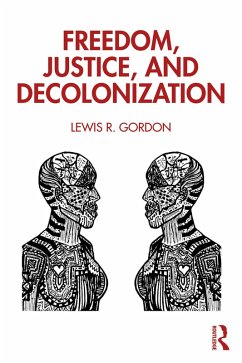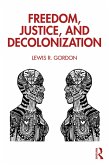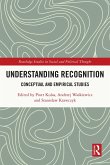Dieser Download kann aus rechtlichen Gründen nur mit Rechnungsadresse in A, B, BG, CY, CZ, D, DK, EW, E, FIN, F, GR, HR, H, IRL, I, LT, L, LR, M, NL, PL, P, R, S, SLO, SK ausgeliefert werden.
Hinweis: Dieser Artikel kann nur an eine deutsche Lieferadresse ausgeliefert werden.
Drucilla Cornell, Research Professor, University of Venda, Professor Emerita at Rutgers University
"If you are interested in enlarging the scope of not just knowledge, but also your curiosity in the discipline of philosophy as not just a 'stand-in and interpreter' but instead the fluctuating plane interwoven in 'shifting the geography of reason,' you need to read this book. If you are interested in what can be learned about the connections between what we are used to thinking and our very different ways of thinking, you need to read this book. If you think that 'cultural politics,' 'multiculturalism,' 'diversity,' and 'tolerance' are overused and misused words, you need to read this book. If you are overwhelmed by 'pessimism of the intellect' and hope for some 'optimism of the will,' you need to read this book. Lastly, since you are not going to be traveling so much in the future, maybe you can travel in the different landscapes and different exchanges, by reading this book."
Natalija Micunovic, Institute of Social Sciences, Belgrade, Serbia
"In Freedom, Justice, and Decolonization, Gordon offers a profound and challenging discussion of topics both abstract and immediate to make a case for the pressing need for a radical and wide-ranging project of decolonization. In so doing, he undertakes a daring and exciting re-orientation of our approach to such staid and often threadbare preoccupations as freedom, rationality, essence, justice, and the political, each of which is in desperate need of decolonizing. All of this is, at the same time, interwoven with engaging and challenging meditations on pressing issues ranging from the political situation in contemporary Russia, to the pragmatics of Black liberation in the U.S., to the uses and abuses of Afropessimism in and beyond the academy. The result is vibrant and exhilarating demonstration of the power of human thought in a political and cultural moment that consistently works to negate it."
Michael Monahan, author of The Creolizing Subject and editor of Creolizing Hegel
"In this deeply, prognostic reflection, Lewis R. Gordon expounds eloquently on the struggles for freedom, justice, and decolonization from a Black existentialist perspective. By shifting the geography of reason, prioritizing the responsibility of reason, and insisting on reasonability, his powerful critique of moralism and liberalism moves through paradoxes of political commitment and contemporary forms of decadence - Euromodernity, presumptions of justice, secularized theodicies, Afropessimism, and postmodern avowals. The remarkable site he delivers for political responsibility produces actions that reach beyond the self to the anonymous 'we.' There, in this space of the yet-to-be-born and of many who have become ancestors, he offers a future that is never ours, and presents an unexpected but profound understanding of political responsibility that is premised on a political form of love."
Nkiru Uwechia Nzegwu, SUNY Distinguished Professor









